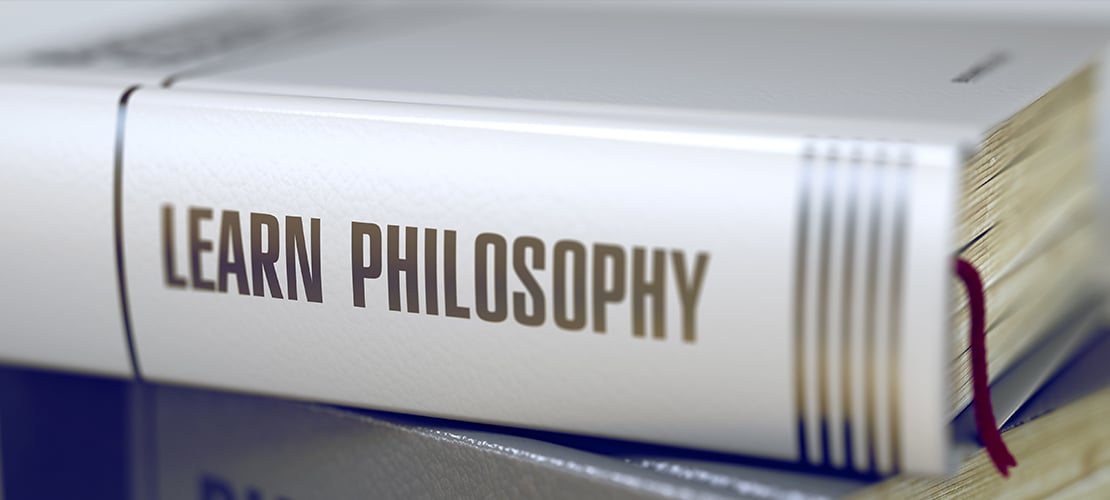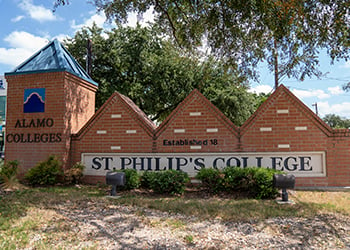
Philosophy
Program Level:
Pre-Majors/Transfer
Department:
Social and Behavioral Sciences
Institute:
Creative & Communication Arts
College:
SPC
What is Philosophy?
The Program of Philosophy at St. Philip’s College offers a diverse set of courses in philosophy that introduces students to the study of philosophical texts, issues, problems, and ideas. We offer introductory courses in philosophy, ethics, and logic, as well as a specialized course in world religion.
What will I learn?
Students are given the opportunity to question, reflect upon and discover vital issues and concerns of philosophy and the philosophical dimensions of their own lives, and indeed, of the human condition. They will learn how to think, read, and write critically and will learn the skills and applications of logical reasoning. Students will come to understand systems of ethical thought and how they may be applied to actual ethical problems. Students will develop an understanding and appreciation of fundamental philosophical and religious views of our culture and other cultures, and will broaden, deepen, and enrich their knowledge of social and political thought, the philosophy of religion, and the history of philosophy.
What can I do with this course of study?
Students who have studied Philosophy at St. Philip’s College have transferred to four-year universities and declared majors in philosophy at the university level. Some have gone further into graduate studies in Philosophy, which would qualify them to engage in research, writing, and teaching at the college level. However, many students who earn their Bachelor of Arts degree in Philosophy go on to graduate studies in other disciplines such as political science or history, as well as into professional studies in business, engineering, and law. Law is an instructive example here because the critical thinking skills one learns as a Philosophy major have wide application, including on examinations such as the Law School Admission Test (LSAT). Philosophy majors score, on average, quite well on the exam, and when comparing average LSAT Scores by majors with over 1,000 applicants in 2018, Philosophy (157.2) came in third only behind Economics (158.9) and Business (158.9).
However, there are many academic and professional pathways that are opened through the study of Philosophy, and there are many Philosophy major “role models” from comedian Ricky Gervais to former CEO of Hewlett-Packard, Carly Fiorina, to Pope Francis I, who earned a degree in philosophy from the Colegio de San José in San Miguel, Argentina. A degree in philosophy is very helpful in many fields because of its emphasis on the development of clear, logical, and critical thinking and writing. The development of these skills will aid any student seeking degrees in many fields including law, medicine, engineering, and science.
What's special about the program?
The Philosophy Program at St. Philip’s College offers students a solid, interesting, and challenging curriculum. The faculty members in the program have many and varied types of expertise within the field of Philosophy which is beneficial to our students. Our program stresses high-level teaching to help students fully engage the course material in order to understand the arguments and issues at hand. Each semester we offer faculty-led symposiums and travel with our students to philosophy lectures, events, and conferences.
We have a well-established Philosophy Club focusing on a wide variety of philosophical issues, and we have an experienced team that competes in the annual Ethics Bowl sponsored by the Association for Practical and Professional Ethics (APPE). Students have competed in the Texas Regional Ethics Bowl and traveled to cities like Dallas (2017) and Chicago (2018) to attend the annual APPE conference.
Degrees and Certificates
St. Philip's College programs offer the following degree(s) and certificate(s). View our Course Catalog for more information.

Contact Us
|
Andrew Hill, J.D. Associate Professor of Philosophy and Ethics |
MLK : Sutton Learning Center (SLC), 219Z |
|
|
Department Location Social & Behavioral Sciences |
MLK : Sutton Learning Center (SLC), 219 |




